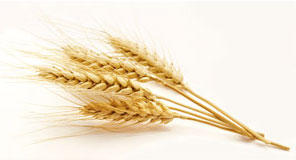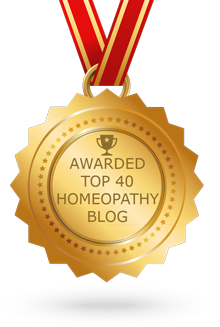
The thought of excluding wheat-containing foods for most people seems impossible, but many people are now choosing a wheat-free diet. Scientific research is now giving us many good reasons to avoid wheat-containing products as they are increasing the potential for a surprising number of health problems. Obesity, Heart Disease, Coeliac’s Disease, Systemic Inflammation of the Immune System, Rheumatoid Arthritis, Fibromyalgia, and Irritable Bowel Syndrome (IBS) are all aggravated by wheat. Wheat increases blood sugar, aggravates and inflames our intestines and inhibits the absorption of important minerals. Some people suffer from digestive symptoms such as constipation, diarrhoea, bloating and flatulence and psychological symptoms such as irritability, as well as behaviour and concentration problems as a result of eating wheat-containing foods.
Wheat Free vs Gluten Free
Wheat is the highest offending grain when it comes to gluten. This is because modern wheat is not what it used to be as it has been hybridized and genetically altered so that the protein structure of the gluten is altered. Other grains such as Spelt, Barley, Oats, Einkorn all contain gluten but because the protein structure of the gluten in these individual grains is different, people who react to modern wheat may or may not react to these other varieties of wheat and grains. People with coeliac disease should avoid them completely until research into grains, gluten and coeliac disease indicates otherwise. So it is not that these other grains contain ‘less’ gluten, though some do, it is that the protein structure of the gluten is different making it less reactive and more easily digested by some people.
Compared to modern varieties of wheat these other grains are higher in micronutrients like minerals and antioxidants. Einkorn has a higher concentration of beta-carotene and lutein than modern wheat varieties. However, spelt has a marginally lower concentration of B vitamins and phosphorus content. Pseudo cereals like buckwheat and amaranth are also great alternatives to wheat as they are not true grains at all, but rather, grain-like seeds of broad-leafed plants.
What to Eat
Bread: rice bread, spelt bread, corn bread, buckwheat bread, sprouted grain breads, Paleo bread recipes that use almond meal instead of flour, gluten free breads
Paleo Sandwich Bread Recipe
Prep Time: 10 minutes, Cook Time: 40 minutes, Total Time: 50 minutes
Ingredients
3/4 cup soaked almond butter, smooth (store bought is fine too)
6 pastured eggs
2 tbsp honey
1/4 cup coconut oil, melted
1/2 tsp apple cider vinegar
1/4 cup ground golden flax
3 tbsp coconut flour
1 tsp baking soda
1/2 tsp sea salt
Instructions
Preheat oven to 350°F. Line an 8 x 4″ loaf pan with parchment, grease well with coconut oil.In a large bowl, blend the almond butter, eggs, honey, coconut oil and apple cider vinegar with an immersion blender.
In a separate bowl, combine the flax, coconut flour, baking soda and sea salt. Mix the dry into the wet, pour into the greased and lined loaf pan and bake for 35-40 minutes.
Read more: Guilty Kitchen
Breakfast cereals – oats, wheat/gluten free cereals, mueslis, almond meal pancakes.
Almond meal pancakes – soo easy!! Just beat on egg with a splash of milk and add 1/3 cup of almond meal. Mix thoroughly and then cook in a hot buttered pan. Yummy with sliced fruit, yoghurt and maple syrup!
Wraps – barley four wraps, spelt flour wraps, rice flour / gluten free wraps
Crackers and crisp breads – rice cakes/ crackers, corn cakes, quinoa crackers, oat cakes, spelt crackers,
Baking – substitute wheat flour for – spelt flour, rice flour, coconut flour, buckwheat flour, almond meal, corn flour, polenta, gluten free flour
Banana and Coconut Bread Recipe
Makes 1 loaf Serves 12
400 g (14 oz) ripe banana
6 free range / organic eggs
4 fresh pitted dates (see notes)
2 teaspoons vanilla extract or 1 teaspoon vanilla bean paste
60 ml (2 fl oz/ 1/4 cup) macadamia nut oil, coconut oil or cold pressed olive oil
half teaspoon ground cinnamon
2 teaspoons gluten free baking powder
70 g ( 1/2 cup/ 2 1/2 oz) ) coconut flour
20 g (1/4 cup / 1 oz) chia seed (see notes)
Preheat your oven to 150 C. (fan forced) 170 C ( no fan) Combine banana, dates, oil, cinnamon, vanilla, eggs and baking powder into a blender or food processor and blend until creamy and combined – alternatively you can do this by hand in a large bowl. Add the coconut flour and chia seeds and mix through. Rest for 10 minutes to allow the chia and coconut flour to expand. Lightly oil one loaf tin and then line with baking paper – The size I used was: 10 1/2 cm wide and 26cm long. Spoon batter into the tin – at this stage you can decorate the bread with flaked coconut of sliced banana before baking. Bake for 50 – 55 minutes ( a skewer inserted into the centre should come out dry).
See more at: The Healthy Chef
Pasta and noodles –rice pasta, spelt pasta, buckwheat pasta, soba noodles, corn pasta, gluten free pastas
Have you tried “Slendier” spaghetti and noodles? They are made from Konjac sea vegetable and are entirely, wheat and gluten free!! They are available in supermarkets!
Enjoy!
- Vitamin D – “The Sunshine Vitamin” - 29/06/2022
- 20 Tips to Control Your Sugar Cravings - 06/10/2021
- Knock out that cold or flu and fast track your way back to health! - 15/06/2021




Leave a Reply